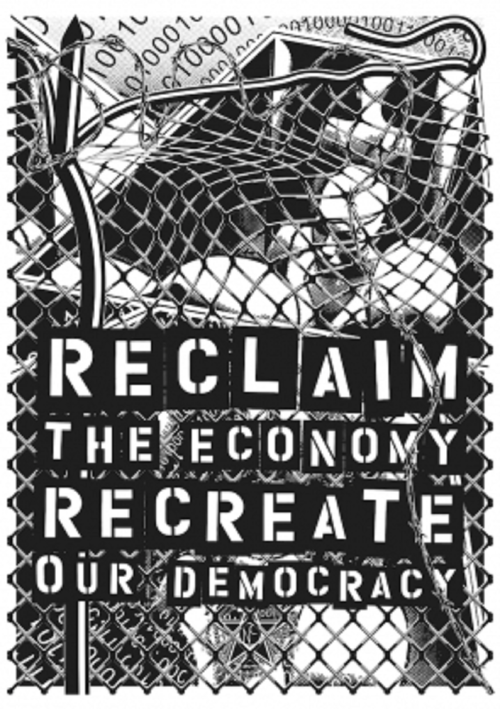Too many Native parents face extraordinary hurdles in keeping their children—including cultural misunderstandings and legal barriers that are unimaginable to many non-Native people. In this second decade of the 21st century, American Indian children in states across the country are still taken from their families and placed in foster care or adoptive homes at a much higher rate than those for other kids—just as they were before the passage of the 1978 Indian Child Welfare Act (ICWA), a federal statute intended to help keep Native families intact.
In Alaska, Native children make up 20 percent of the child population but 51 percent of those a state agency has placed in foster care; Montana, Nebraska, Oregon, Utah, North Dakota and Washington also have similarly skewed ratios. In Minnesota, the percentage of Native children in foster care is high, and it’s gotten worse in recent years. “Disproportionalities exist nationwide at every stage in the process, starting right from the initial reports of possible abuse or neglect of a Native child,” says Kristy Alberty, Cherokee, spokeswoman for the National Indian Child Welfare Association.
To safeguard their children, many tribes have offices dedicated to the implementation of ICWA. Among other provisions, the 34-year-old law allows tribes a role in the process when states place Native children in foster care or seek to terminate tribal members’ parental rights. Diane Garreau is the ICWA director for the Cheyenne River Sioux Tribe in South Dakota, where Indian youngsters make up 15 percent of the state’s children, but 52 percent of those in care.
What are some of your biggest challenges?
Garreau: Because we are a west-river tribe—that is, west of the Missouri, which cuts across the state—many of our ICWA cases come out of the Rapid City courts. They are notorious for taking kids away from parents, who may not have a lawyer at the initial hearing. The state almost always gets custody for 60 days, during which time it can investigate to see if there’s actually a problem. Imagine how frightened the little ones must be. They’re taken from everything they know for all that time—and possibly for no reason. It makes me so angry.
Sounds like this is personal for you.
I don’t want the trauma boarding schools inflicted on previous generations to claim today’s children. I know the pain of separation from family and community, the hurt you feel when you’re taken from those who love you and want to protect you. When I was a student at St. Joseph’s Indian School, a boarding school in Chamberlain, South Dakota, I experienced mistreatment—like many of my age group. That was 30 years ago, not 150 years.
What should happen in the state courts?
All parents should have lawyers at every hearing. To get custody of the kids, the state should have to prove there’s a problem, and that the family wasn’t simply in the wrong place at the wrong time. Of course, some children need protection, but under ICWA, an expert witness who’s familiar with tribal customs and traditions must testify as to whether the Native children are actually in danger. Native youngsters are sometimes removed from their families because grandma or auntie is taking care of them—a culturally sound option as far as the tribes are concerned, but one that any state may define as neglect. A federal law is being flouted—and frankly, it’s happening in courts all over our state.
Are there other options state courts could consider?
The courts could give parents physical custody and social services legal custody and mandate the efficient creation of a safety plan. That way, the family could stay together, and we could be certain the children were safe while we figured out the situation.
How long does it take to come up with the plan?
Right now in South Dakota, it can take several months, so parents who’ve lost their kids are in the dark all that time about what to do to get them back. They’re also typically not told what services are out there for them. They’re really at a loss. So I tell parents, “You know your issues; work on them.” Then I help them find programs. But that’s not the only hurdle: Let’s say a mother lost her kids in Rapid City. She didn’t have representation, she’s fearful and confused, so she comes home to the reservation for advice and support. The state may call this abandonment and move to take her kids permanently for this reason.
And it doesn’t stop there: If a Native person was ever arrested, they typically had no bail money and a busy, perhaps inexperienced public defender, who told them to plead guilty to get out of jail. So Native moms and dads may be stuck with convictions they wouldn’t have had with better legal representation—and that can affect what a judge thinks of them when deciding whether they can have their kids back.
Doesn’t ICWA allow you to move cases to tribal court?
Absolutely. Under ICWA, I can transfer jurisdiction, and once I’ve intervened, I can see the kids and have access to any investigations. I can have a say. All of this is good, except the state still manages to hold tight to custody of the kids for much of that 60 days. The investigative process still has to happen. Resolving a family’s problems is still more difficult and painful than it needs to be.
Has implementation of ICWA improved?
When I started as an ICWA director in 2002, states all over the country just didn’t pay attention to the tribes. It felt like we were sitting out on the prairie, so out of touch. Now, some are improving: Oregon reliably notifies us when Native children go into care there, and New York has been easy to deal with. To create the best outcomes in spite of existing issues in some other states, an ICWA director has to build relationships. I want social workers nationwide to know they can call Cheyenne River for advice about ICWA. In some cases, those personal relationships have meant I could resolve a family’s problem in hours when it might have taken months.
How many ICWA cases do you handle annually?
We get 1,000-plus inquiries a year and respect every one, checking with our enrollment office to see if those involved are tribal members. Some claims can be far-fetched. One state called me and said, “We’ve got this person who says she’s related to Pocahontas.” That was very cute [laughs]—and I understand she may have been desperate to keep her kids and was grasping at straws—but she definitely wasn’t a member here. Of the thousand requests, about 50 will be Cheyenne River kids.
Is that a lot for a small staff?
It is, and we get burned out with just two full-time workers and minimal resources. All ICWA offices function with few resources; a colleague at another tribe once told me, “All I have is a car and a cell phone.” I recently got very sick and realized I’ve got to take good care of myself to keep doing this.
What about parents who aren’t enrolled, though they could be?
Under ICWA, parents have to be enrolled for their kids to be covered. Problems arise because during the mid-20th century, many Native children were adopted out [see “
Native Americans Expose the Adoption Era and Repair Its Devastation,”
IndianCountryTodayMediaNetwork.com, December 6, 2011]. They were not enrolled prior to adoption and are now adults; if their children happen to be taken away, those kids are not covered. If the parents can prove their relationship to a tribe, maybe they can fix this, but not always. This is another situation in which a historical wrong has life-changing repercussions today.
What can tribes do?
If they have eligible youngsters who are currently being adopted out, they must enroll them first, to keep intact the children’s rights to inherit land, obtain scholarships and health care, have their own kids protected by ICWA and so on. We do this at Cheyenne River to protect children’s futures and give them a sense of belonging to a proud nation. Any child, of any background, needs that sense of belonging.
Do other laws conflict with ICWA?
We tribes have said states’ so-called “safe haven” or “Baby Moses” laws, which allow parents in crisis to drop newborns off in safe places such as hospitals and police stations, are in violation of ICWA. Those infants move quickly into foster care and preadoption. How and when do we determine if they are Native children? No one thought of this when the laws were passed.
Why are there few Native foster homes in South Dakota?
Poverty and fear. The agency that gets a lot of contracts to do home studies often calls me to say Native people who want to be foster parents haven’t responded to requests to evaluate their homes. They don’t realize how much Native people dread being told they can’t be foster parents because they don’t have lavish homes, expensive furniture and so on. A policy could be created under which a tribal member, say from the ICWA office, went along during the home study to reassure our people they’ll be treated fairly and that, in essence, we want to be sure the home is clean and safe and that the children will be welcomed with love while they’re there.
Do the ICWA directors of different tribes communicate?
We do, but we could all do more. If we had a national professional association with a website, we could post lists of pro-bono attorneys, potential funders, expert witnesses and other resources. We could share best practices and answer each other’s questions. We could provide information on state ICWA laws, which enhance the federal protections, but in different ways from state to state. ICWA directors are on the front line, in and out of the courts, dealing with families in crisis. We need to be a force to reckoned with, and information sharing would help us become one. We Native people have to solve our own problems, and this would help us do it.
What keeps you going?
I was at a pow wow recently and saw a group of Cheyenne River kids, then another group, and remembered they were all ICWA kids—children our office had brought home. This is why I do it. If you’re not watching, if you don’t start hustling as soon as you hear there’s a problem, if you don’t fight for every single child, they’re lost to us forever.





